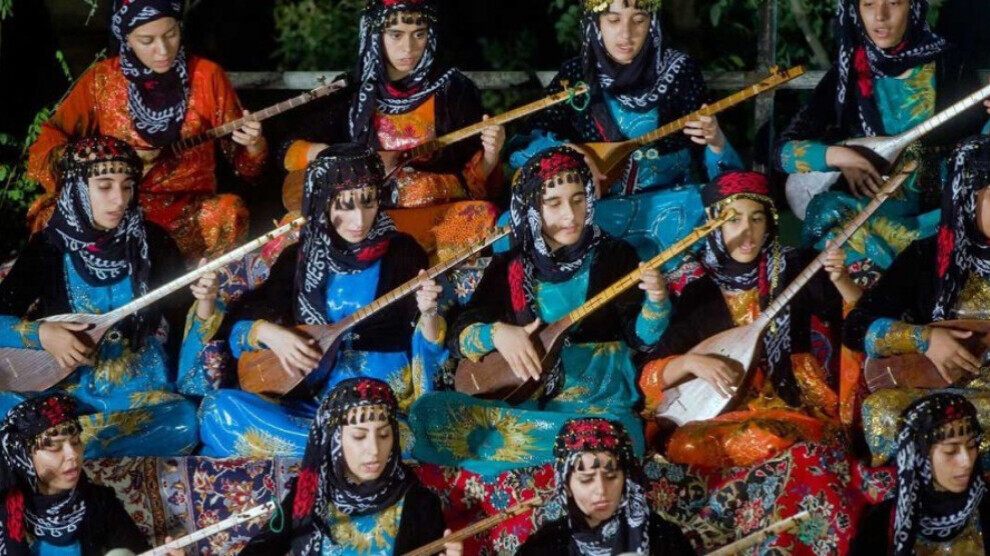‘Men and women have equal rights in the Yarsan community’
Iranian sociologist S.B. says the Yarsan people are subjected to various discriminations and their identity is denied. “This community has been recognizing women's rights more in the last dozen years following the development in science and culture.”

JUAN KERAMI
Kuzaran-Yarsanism is an inherited, syncretic religion founded in the late 14th century in western Iran. Some sources say the population of Yarsan is about two million, living mostly in the west of Iran spread over several cities like Kermanshah, Hamedan, Kurdistan, Azerbaijan, Kelardasht and several other towns across Iran. Although they are the second religious ethnic group after Muslims in Iran and Rojhilat Kurdistan, their identity is denied, and they are often called as “Shia Muslims”. The regions where the followers of Yarsanism, who are subjected to various discriminations, are the least developed regions. NuJINHA spoke to Iranian sociologist S.B., who does research on the rituals of Yarsanism and the status of women in the Yarsan community across Eastern Kurdistan, Kurdistan Region of Iraq, Iran and Iraq.
‘Women and men have equal rights’
Speaking about the rights of women in Yarsanism, S.B. said, “The philosophy of Yarsanism always emphasizes that men and women have equal rights. According to the ancient texts, there is no difference between men and women and men and women take an equal sum of inheritance. The texts say that there is no difference between men and women and that they have equal rights.”
‘Their identity is always denied’
Commenting on the current situation of the Yarsan people, she said, “All ethnic groups are affected by the policies of the countries they live in. The Yarsan community is one of these ethnic groups. We can say that they live in the poorest regions in Bashur Kurdistan (Southern Kurdistan). Although they are the second religious ethnic group after Muslims in Iran and Rojhilat Kurdistan, their identity is denied, and they are often called as “Shia Muslims”. They are not employed in government offices and they are subjected to humiliation in Muslim schools and offices. Yarsan soldiers are humiliated in barracks, the regions where they live in the least developed regions and most Yarsan men and women are not employed due to their religion.”
‘Many Yarsan families hide their identity’
In her research, S.B. found out that many Yarsan families hide their identity and force their children to hide their religion in society due to oppression on them.” Speaking about the role of women in Yarsanism, she said, “This community has been recognizing women's rights more in the last dozen years following the development in science and culture. Yarsan women go to universities and participate in the labor force more now.”
Some observers believe that the "Jin, Jiyan, Azadi" uprising could lead to serious cultural and social changes. Speaking about how this uprising can affect Yarsan families and community, S.B. said, “Yarsan women give particular importance to their local clothing and they always have a comfortable and acceptable clothing style. In my opinion, this uprising has affected Yarsan women, who want to have their rights.”
At the end of her speech, S.B. called on Yarsan and Kurdish women to make more efforts to develop themselves both in culture and politics. “If women develop themselves in culture and politics, they will have the place that they deserve in society.”
